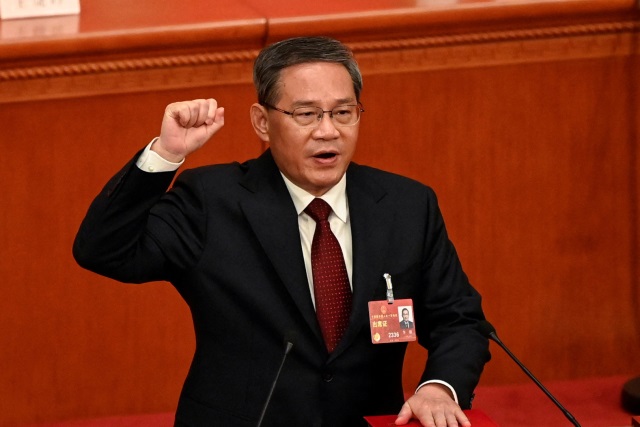Leaving the Belt and Road Initiative (BRI) also known as Silk Road does not compromise relations with China, but the decision still has to be taken, Italian Prime Minister Georgia Meloni said on Sunday, the Italian media, Corriere della Sera daily reported.
On the sidelines of the G20 Summit, the Italian PM met Chinese Premier Li Qiang and shared her plan to pull out of the BRI, as per the Italian media report.
In the press conference on the last day of the G20 Summit, Meloni turned to talk about the conversation she had with the head of the Chinese government.
“A cordial and constructive dialogue on how we can deepen our bilateral partnership… I intend to keep my commitment to visit China… It makes more sense to go to China when we have more information on our bilateral cooperation and how to develop it,” Meloni said at the conference.
“Leaving the Silk Road does not compromise relations, but the decision still has to be taken,” the prime minister assured.
“The Italian government was invited to the Belt and Road Forum, but yesterday we didn’t talk about it,” with the Chinese prime minister., Meloni said at the conference.
Earlier, Corriere della Sera daily reported that the prime minister has communicated to her counterpart her intention to exit the strategic project for Beijing. However, Li Qiang made one last attempt to provoke a rethink on the part of the Italian authorities.
It is pertinent to mention that Italy was the only G7 nation to sign up for the BRI, a global trade and infrastructure plan modelled on the old Silk Road that linked imperial China and the West.
At the conference, PM Meloni also talked about Africa and said that the country was central to the work of the G20 “We also consider this to be our success. “Africa will also be one of the central issues that we will bring to the G7 (under the Italian presidency) next year,” she added according to Italian media.
The Italian PM, who arrived in India on Friday, held a bilateral meeting with her Indian counterpart Narendra Modi on the sidelines of the G20 Summit in New Delhi.
Notably, this is the second visit of Prime Minister Meloni to India following her State visit in March 2023, during which bilateral relations were raised to the level of a Strategic Partnership.
The two leaders noted with satisfaction the completion of 75 years of establishment of diplomatic relations between the two countries. They also took stock of the progress in diverse areas of the India-Italy Strategic Partnership and agreed to bolster cooperation in areas like defence and new and emerging technologies. They noted the need for G7 and G20 to work in consonance for the greater global good. (ANI)
Read More: http://13.232.95.176/


